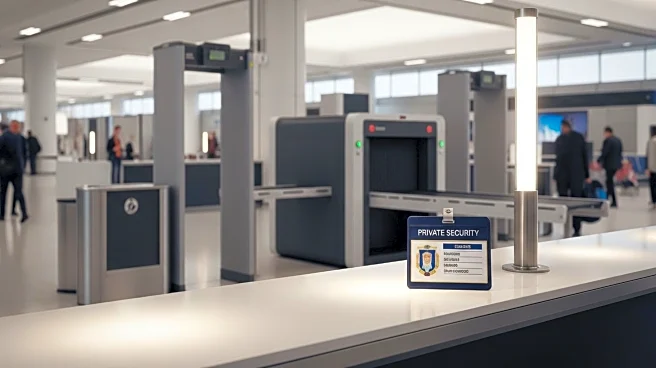What's Happening?
CLEAR, a private company, has increasingly become a fixture in airport security, offering expedited services for travelers willing to pay a premium. This development has sparked discussions about the balance between public and private interests in airport operations. CLEAR's service allows users to bypass traditional security lines, raising questions about equity and access in air travel. The company's growth reflects a broader trend of privatization in public spaces, where convenience is often prioritized for those who can afford it.
Why It's Important?
The expansion of CLEAR's services in airports highlights the ongoing debate over privatization in public sectors. While it offers convenience for travelers, it also raises concerns about fairness and accessibility. This trend could influence how public services are structured, potentially leading to increased privatization in other areas. Stakeholders such as airlines, airport authorities, and passengers may have differing views on this development, with some advocating for more inclusive solutions that do not rely on additional fees.
What's Next?
As CLEAR continues to expand, it may face scrutiny from regulators and consumer advocacy groups concerned about the implications of privatizing security services. Discussions around policy changes or regulations to ensure equitable access to airport security may arise. Additionally, other companies might enter the market, increasing competition and potentially leading to innovations in security processes.
Beyond the Headlines
The rise of CLEAR in airport security could signal a shift in how public services are delivered, with private companies playing a larger role. This trend may prompt ethical considerations about the commodification of essential services and the potential impact on social equity. Long-term, this could influence public policy and societal norms regarding access to services traditionally managed by government entities.









